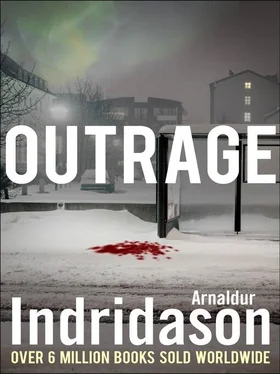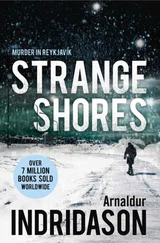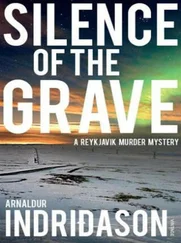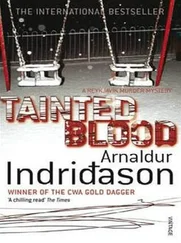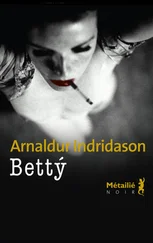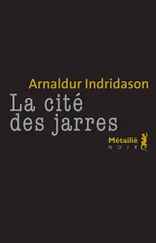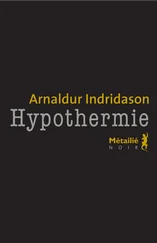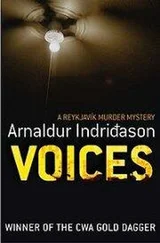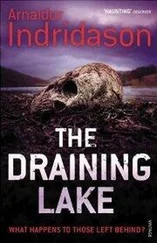Arnaldur Indridason - Outrage
Здесь есть возможность читать онлайн «Arnaldur Indridason - Outrage» весь текст электронной книги совершенно бесплатно (целиком полную версию без сокращений). В некоторых случаях можно слушать аудио, скачать через торрент в формате fb2 и присутствует краткое содержание. Год выпуска: 0101, Издательство: Random House Canada, Жанр: Полицейский детектив, на английском языке. Описание произведения, (предисловие) а так же отзывы посетителей доступны на портале библиотеки ЛибКат.
- Название:Outrage
- Автор:
- Издательство:Random House Canada
- Жанр:
- Год:0101
- ISBN:нет данных
- Рейтинг книги:3 / 5. Голосов: 1
-
Избранное:Добавить в избранное
- Отзывы:
-
Ваша оценка:
- 60
- 1
- 2
- 3
- 4
- 5
Outrage: краткое содержание, описание и аннотация
Предлагаем к чтению аннотацию, описание, краткое содержание или предисловие (зависит от того, что написал сам автор книги «Outrage»). Если вы не нашли необходимую информацию о книге — напишите в комментариях, мы постараемся отыскать её.
Outrage — читать онлайн бесплатно полную книгу (весь текст) целиком
Ниже представлен текст книги, разбитый по страницам. Система сохранения места последней прочитанной страницы, позволяет с удобством читать онлайн бесплатно книгу «Outrage», без необходимости каждый раз заново искать на чём Вы остановились. Поставьте закладку, и сможете в любой момент перейти на страницу, на которой закончили чтение.
Интервал:
Закладка:
Vala took a deep breath. Elínborg sensed the girl’s distress. ‘Then, when I was older, I heard other things about Addý and what had been done to her. Some people found out about it but said nothing. Maybe they found it hard to believe. Or embarrassing. Or shameful. It took years before the whole village knew. I think everyone is aware of the truth now. I’ve no idea how the rumours started, because Addý herself never said a word. She never made any accusation. Maybe he boasted about it when he was drinking. Maybe he was proud of what he did. I doubt that he had any regrets, somehow.’
Vala fell silent. Elínborg waited patiently for her to continue.
‘Addý never told anyone the truth. Except her brother, probably, in the end. I think he must have heard the rumours by then, too. She was living with a shame of her own making. I’ve read a lot about women like her. Most of them, if not all, need special therapy. Apparently they blame themselves. They live with their anger and cut themselves off.’
‘What happened?’
‘He raped Addý.’ Vala gazed at the cross. ‘The word spread gradually that she’d been raped, and who the man was, but she never said anything and no one was ever charged. No one was tried. And no one lifted a finger to help her,’ said Vala.
‘Who did it?’ asked Elínborg. ‘ Who raped her?’
‘I’m sure Kristjana knows about it. Knows perfectly well what her son did. She lives in a state of denial. She has a rough time here. The kids make fun of her, break her windows.’
‘You’re talking about Runólfur?’
‘Yes. He raped Addý — and she never got over it. They found her in the sea down here, just below the churchyard. She’d floated down here, to her place of rest.’
‘What about Runólfur?’
‘Everyone here knows who killed him.’
Elínborg gazed at Vala for a long time. In her mind she saw an elderly man swerve over calmly into the oncoming traffic — and smile at the heavy lorry bearing down on him.
32
Back at the guest house Elínborg did a few hours’ work in her room, which she had converted into an ad hoc office. She made a number of phone calls to Reykjavík to gather more information. She spoke to Sigurdur Óli and they planned their next move. Police officers would be sent to the village but it would take time for them to reach her. Sigurdur Óli urged Elínborg to take no further action until backup was in place. She told him not to worry. Konrád and Nína were still in custody, and Elínborg was not surprised to learn that Konrád had changed his story once again: he now denied killing Runólfur and maintained that his daughter Nína was also innocent.
Darkness was falling when Elínborg left the guest house, crossed the main road and walked down towards the harbour — the same route she had taken on her first visit. The garage was at the northern end of the village and she headed in that direction. She thought about the snow that was forecast, and hoped she would not be snowed in here. She looked up at the sign over the door; now she knew for certain that a shotgun had once been fired at it. Vala had told her that years ago, when he was still drinking, Valdimar had taken a potshot at his own sign.
Elínborg stepped into the reception area. Everything was as before, and Elínborg reflected that it had probably not changed since the day when the garage had opened for business. On the wall behind the counter hung a pin-up calendar displaying a photo of a scantily clad girl. It showed the year 1998. Days, weeks, years had no meaning here. Time seemed to stand still. Everything in sight — the counter, the old leather armchair, the desktop calculator, the order book — was coated in a thin layer of sooty grime from engines, spares parts, lubricants and tyres.
Elínborg called into the garage, but received no answer. She advanced cautiously into the workshop, where the Ferguson tractor stood in exactly the same place. As on Elínborg’s last visit, there were no other vehicles inside. Against the wall were two open tool-lockers.
‘I heard you were back,’ said a voice.
Slowly, Elínborg turned around. ‘You must have been expecting me,’ she said.
Valdimar was standing behind her, wearing a checked shirt and ragged jeans. In his hand he held a set of overalls, which he started to put on. ‘So you’re on your own, are you?’ he asked.
Valdimar must have been well aware that Elínborg was alone. Yet there was no veiled threat in his question, which seemed calculated to engender trust rather than fear.
‘Yes,’ replied Elínborg without hesitation. As he slipped the overalls over his shoulders and pushed his arms through the sleeves, Valdimar reminded her of her husband Teddi.
‘I live up above,’ explained Valdimar, pointing at the ceiling. ‘I didn’t have much work on, so I took a nap. What time is it?’
Elínborg told him the time. She did not feel at any risk. Valdimar was calm and polite.
‘So you don’t have far to go to work,’ she said, smiling.
‘It’s convenient,’ replied Valdimar.
‘I’ve been down at the churchyard,’ Elínborg told him. ‘I saw your sister’s grave. I gather she committed suicide two years ago?’
‘Have you ever lived in a little place like this?’ asked Valdimar. He moved closer to Elínborg, cornering her against one of the tool lockers.
‘No, I never have.’
‘They can be weird.’
‘I imagine they can.’
‘Outsiders like you can never really understand what it’s like.’
‘No, I don’t suppose we can.’
‘I hardly understand some of it myself — and I live here. Even if I explained it to you, it would only be a fraction of the truth. And that fraction of the truth would be seen as a lie by Haddi down at the filling station, for instance. Even if you spoke to every single person — and spent twenty years doing it — you’d never get more than a tiny glimpse of what it’s like to live in one of these villages. How people think. The relationships within the community. The ancient bonds that link people. And keep them apart. I’ve lived here all my life, and there’s still so much I don’t understand. But this is my home. Even though your friends may suddenly turn into your worst enemies. And people keep their secrets, to the grave and beyond.’
‘I’m not sure …’
‘You’ve no idea what I’m talking about, have you?’
‘I believe I know some of what happened.’
‘They know you’re with me,’ said Valdimar. ‘They know why you came back. They know you came here to talk to me. They all know what I did, but they don’t say anything. No one says a word. Not bad, is it?’
Elínborg said nothing.
‘Addý was my half-sister, four years older than me. We were close. I’ve never met my father — I don’t know who he is, and I don’t care to know. My sister’s father was some Norwegian seaman who stopped here just long enough to knock our mum up. They didn’t think much of my mum, here in the village. It took a long time before I realised that she was a pariah. You find out, bit by bit, because you get teased. Otherwise you’d never be any the wiser. She was a good mother to us, and we never had anything to complain about — even if we had the odd visit by a social worker, some strange caller carrying a briefcase, not like anyone else, who looked my sister and me over and asked stupid questions. They never found anything wrong — because, although she had her problems, my mother was a fine woman. She worked her fingers to the bone at the fish factory, and although we were poor we never went without. My mum, with her two little bastards — that was what we were called — was known by a certain name in the village. I shan’t tell you what. I got into three bad fights about that — got my arm broken once. Then she died, and was at peace. She’s lying in the churchyard, next to her daughter.’
Читать дальшеИнтервал:
Закладка:
Похожие книги на «Outrage»
Представляем Вашему вниманию похожие книги на «Outrage» списком для выбора. Мы отобрали схожую по названию и смыслу литературу в надежде предоставить читателям больше вариантов отыскать новые, интересные, ещё непрочитанные произведения.
Обсуждение, отзывы о книге «Outrage» и просто собственные мнения читателей. Оставьте ваши комментарии, напишите, что Вы думаете о произведении, его смысле или главных героях. Укажите что конкретно понравилось, а что нет, и почему Вы так считаете.
